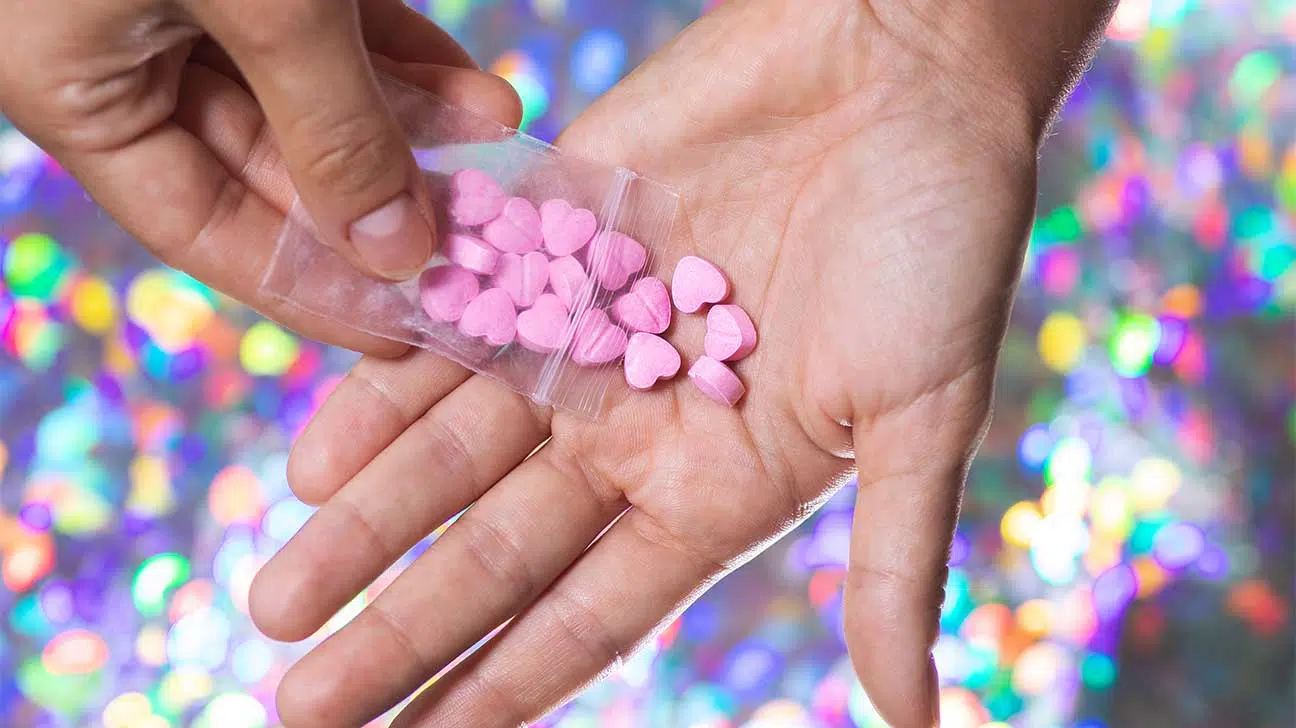
MDMA, also known as ecstasy or molly, is a derivative of amphetamine. People often take this “party drug” at raves and clubs to increase feelings of well-being, energy, and empathy.
MDMA has effects that are similar to those of hallucinogens like LSD and ketamine, as well as stimulants like meth or cocaine.
There is clear evidence that tolerance to MDMA can develop. Ecstasy use is dangerous, and when a person needs a larger dose to feel the effects of ecstasy that they are used to, it means a tolerance to the drug is present.
MDMA use can have many negative long-term effects on physical and mental health. High doses of MDMA are more likely to cause overdose and impairment.
How A Tolerance To MDMA Can Develop
Studies on MDMA tolerance are limited, but the research that does exist shows that tolerance to MDMA occurs the more someone uses the drug.
Neuroscience shows us that neuroadaptive processes are involved in tolerance to MDMA.
This means that the pharmacology of the drug is such that it affects many chemicals in the brain, and as these chemicals get used to the presence of MDMA, the effects of the drug are lessened.
Some neurotransmitters that are affected by MDMA include serotonin (making MDMA a “serotonergic” drug), dopamine, serotonin transporters, and other neurons and neurochemicals.
The way MDMA interacts with these brain chemicals is responsible for the drug’s euphoric effects. As someone uses more MDMA, it will take higher doses to have the same effects on the brain.
Symptoms Of MDMA Tolerance
The main symptom of MDMA tolerance is a need to take more of the drug to feel its effects.
MDMA tolerance may develop because someone is using the drug heavily and often. Heavy MDMA use has several negative effects.
Short-term side effects of MDMA use may include:
- nausea
- teeth clenching
- sweating
- increased body temperature (hyperthermia), heart rate, and blood pressure
- loss of inhibition and impulsive behavior
- muscle cramping
Causes Of Ecstasy Tolerance
Tolerance to MDMA is usually the result of using the drug frequently at a high dosage. Using other drugs at the same time can also have an effect on tolerance.
Dosage Used
Tolerance is defined by needing an increased dose to feel the same effects. Using a high dose of MDMA will accelerate the process of building tolerance to the drug.
Many people “stack” ecstasy tablets, taking a very large dose at one time. Then they may take more throughout the experience to “boost” the drug’s effects.
These practices lead to the body getting used to very high doses of MDMA and can build tolerance.
Frequency Of Use
Another important factor in the development of MDMA tolerance is the frequency of use. The more often someone uses the drug, the more likely tolerance is to build.
Other Substances Used With MDMA
MDMA is usually thought of as an “upper” because of its stimulant-like effects. Using drugs like alcohol, cannabis, benzos, or opioids with MDMA might counteract some of the drug’s effects.
This could lead someone to use even more MDMA than they otherwise would.
Effects Of MDMA Tolerance On Withdrawal
Research is inconclusive as to whether MDMA is an addictive drug, although some research does suggest that it is.
Many people who use MDMA experience withdrawal symptoms when they stop using the drug for a period of time.
Withdrawal symptoms from MDMA might include fatigue, loss of appetite, trouble concentrating, and depression.
Treatment Programs For MDMA Abuse
Interventions for people abusing MDMA are critical to avoid long-term effects and overdose. Drug addiction treatment can help with MDMA abuse.
Treatment programs for MDMA include healthcare services to address related health issues, psychiatry interventions, and behavioral therapy.
Both inpatient and outpatient treatment programs can be effective in treating MDMA abuse, depending on the person and the specific situation.
Find Substance Use Disorder Treatment Services Today
If you or a loved one is struggling with ecstasy abuse, it is important to seek effective treatment to help you enter recovery and prevent relapse.
Contact us today to learn about your options for treatment and to start your journey to recovery.
Addiction Resource aims to provide only the most current, accurate information in regards to addiction and addiction treatment, which means we only reference the most credible sources available.
These include peer-reviewed journals, government entities and academic institutions, and leaders in addiction healthcare and advocacy. Learn more about how we safeguard our content by viewing our editorial policy.
- National Institute on Drug Abuse (NIDA) –– MDMA (Ecstasy/Molly) DrugFacts
https://nida.nih.gov/publications/drugfacts/mdma-ecstasymolly - National Library of Medicine –– Chronic tolerance to recreational MDMA (3,4-methylenedioxymethamphetamine) or Ecstasy
https://pubmed.ncbi.nlm.nih.gov/15671132/ - Drug Enforcement Administration (DEA) –– Ecstasy Or MDMA (also Known As Molly)
https://www.dea.gov/factsheets/ecstasy-or-mdma-also-known-molly


